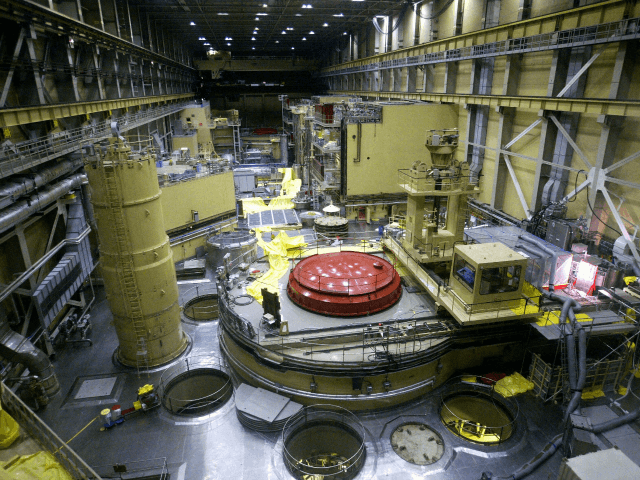BRUSSELS (AFP) – EU authorities on Monday approved a controversial nuclear expansion project in Hungary that is heavily backed by Russia.
The approval removes the last roadblock to the 12.5 billion euro ($13.2 billion) expansion of Hungary’s only nuclear facility, which Russia is financing by 80 percent even as tensions between Europe and the Kremlin run high.
The European Commission “has approved this support under EU state aid rules on the basis of commitments made by Hungary to limit distortions of competition,” said a statement.
Construction of the two 1,200 megawatt reactors at the Paks plant outside Budapest is considered a strategic project by Prime Minister Viktor Orban, a close ally of Russia’s.
EU authorities were under pressure to take a close look at the deal amid fears the Kremlin was using it to meddle further with the bloc’s sensitive energy sector.
On a visit to Hungary last month, Russian President Vladimir Putin lauded the project and said Russia was “ready to finance the expansion 100 percent”. Moscow’s state-owned Rosatom will build the facilities.
The Commission did not mention Russia in its statement, saying its powers were limited to competition concerns and that Hungary’s financing committed no violations.
The deal made headlines in November when Germany’s representative on the Commission, Guenther Oettinger, flew in a private jet belonging to a Kremlin lobbyist closely associated with the project.
Environmental group Greenpeace said the Commission was “spectacularly irresponsible” in giving its approval.
“It’s allowing massive subsidies for a project backed by a government that openly challenges the importance of independent oversight for nuclear safety,” Greenpeace said.
The Commission already drew criticism in November when it dropped an infringement case after Hungary awarded the contract to Rosatom without holding an open tender.
Tensions have been high since Russia’s annexation of Crimea and the start of the conflict in Ukraine in 2014, for which the 28-nation EU bloc has imposed wide-ranging economic sanctions against Moscow.

COMMENTS
Please let us know if you're having issues with commenting.